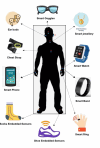Artificial Intelligence and Its Role in Diagnosing Heart Failure: A Narrative Review
- PMID: 38836155
- PMCID: PMC11148729
- DOI: 10.7759/cureus.59661
Artificial Intelligence and Its Role in Diagnosing Heart Failure: A Narrative Review
Abstract
Heart failure (HF) is prevalent globally. It is a dynamic disease with varying definitions and classifications due to multiple pathophysiologies and etiologies. The diagnosis, clinical staging, and treatment of HF become complex and subjective, impacting patient prognosis and mortality. Technological advancements, like artificial intelligence (AI), have been significant roleplays in medicine and are increasingly used in cardiovascular medicine to transform drug discovery, clinical care, risk prediction, diagnosis, and treatment. Medical and surgical interventions specific to HF patients rely significantly on early identification of HF. Hospitalization and treatment costs for HF are high, with readmissions increasing the burden. AI can help improve diagnostic accuracy by recognizing patterns and using them in multiple areas of HF management. AI has shown promise in offering early detection and precise diagnoses with the help of ECG analysis, advanced cardiac imaging, leveraging biomarkers, and cardiopulmonary stress testing. However, its challenges include data access, model interpretability, ethical concerns, and generalizability across diverse populations. Despite these ongoing efforts to refine AI models, it suggests a promising future for HF diagnosis. After applying exclusion and inclusion criteria, we searched for data available on PubMed, Google Scholar, and the Cochrane Library and found 150 relevant papers. This review focuses on AI's significant contribution to HF diagnosis in recent years, drastically altering HF treatment and outcomes.
Keywords: artificial intelligence in medicine; ecg interpretation; heart failure; machine learning (ml); smart watches.
Copyright © 2024, Medhi et al.
Conflict of interest statement
The authors have declared that no competing interests exist.
Figures





Similar articles
-
Artificial intelligence-enhanced electrocardiography for accurate diagnosis and management of cardiovascular diseases.J Electrocardiol. 2024 Mar-Apr;83:30-40. doi: 10.1016/j.jelectrocard.2024.01.006. Epub 2024 Jan 28. J Electrocardiol. 2024. PMID: 38301492 Review.
-
From Pixels to Prognosis: A Narrative Review on Artificial Intelligence's Pioneering Role in Colorectal Carcinoma Histopathology.Cureus. 2024 Apr 27;16(4):e59171. doi: 10.7759/cureus.59171. eCollection 2024 Apr. Cureus. 2024. PMID: 38807833 Free PMC article. Review.
-
A Narrative Review on the Role of Artificial Intelligence (AI) in Colorectal Cancer Management.Cureus. 2025 Feb 24;17(2):e79570. doi: 10.7759/cureus.79570. eCollection 2025 Feb. Cureus. 2025. PMID: 40144438 Free PMC article. Review.
-
Artificial intelligence in the diagnosis and detection of heart failure: the past, present, and future.Rev Cardiovasc Med. 2021 Dec 22;22(4):1095-1113. doi: 10.31083/j.rcm2204121. Rev Cardiovasc Med. 2021. PMID: 34957756 Review.
-
Application and Potential of Artificial Intelligence in Heart Failure: Past, Present, and Future.Int J Heart Fail. 2023 Nov 30;6(1):11-19. doi: 10.36628/ijhf.2023.0050. eCollection 2024 Jan. Int J Heart Fail. 2023. PMID: 38303917 Free PMC article. Review.
Cited by
-
Emerging Therapeutic Strategies for Heart Failure: A Comprehensive Review of Novel Pharmacological and Molecular Targets.Cureus. 2025 Apr 1;17(4):e81573. doi: 10.7759/cureus.81573. eCollection 2025 Apr. Cureus. 2025. PMID: 40313442 Free PMC article. Review.
-
Multimodal AI in Biomedicine: Pioneering the Future of Biomaterials, Diagnostics, and Personalized Healthcare.Nanomaterials (Basel). 2025 Jun 10;15(12):895. doi: 10.3390/nano15120895. Nanomaterials (Basel). 2025. PMID: 40559258 Free PMC article. Review.
References
-
- Heart failure. Braunwald E. JACC Heart Fail. 2013;1:1–20. - PubMed
-
- Universal definition and classification of heart failure: a report of the Heart Failure Society of America, Heart Failure Association of the European Society of Cardiology, Japanese Heart Failure Society and Writing Committee of the Universal Definition of Heart Failure. Bozkurt B, Coats AJ, Tsutsui H, et al. J Card Fail. 2021
-
- Artificial intelligence in cardiology. Itchhaporia D. Trends Cardiovasc Med. 2022;32:34–41. - PubMed
Publication types
LinkOut - more resources
Full Text Sources
Research Materials
Miscellaneous
